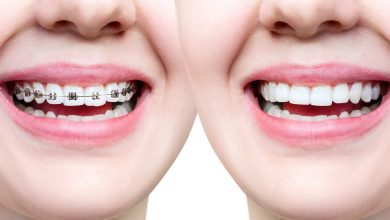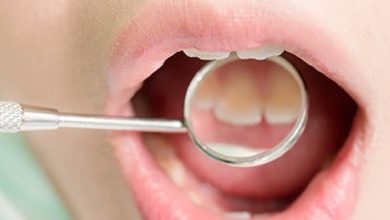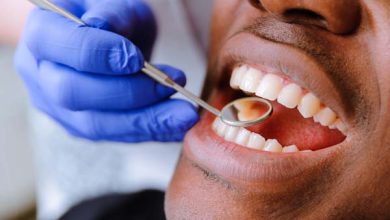Why Does Tooth Decay Smell: Uncovering the Odorous Truth

Tooth decay smells bad due to the breakdown of enamel and dentine, which is caused by bacteria consuming these substances and releasing gas into the mouth, resulting in an unpleasant odor associated with cavities and rotten teeth. This can be a sign of poor oral hygiene and the need for dental treatment to remove the decay and prevent further damage.
If left untreated, tooth decay can lead to bad breath and a bad taste in the mouth. It is important to maintain good oral hygiene practices, such as regular brushing and flossing, to prevent tooth decay and its accompanying unpleasant smell.

Credit: epicdentistryforkids.com
The Science Behind Tooth Decay Odor
Why does tooth decay smell bad? Tooth decay creates a sulphurous or bad smell due to the enamel and dentine being broken down. As the bacteria consume these substances, they release a gas into your mouth that creates the unpleasant odour that occurs with cavities and rotten teeth.
Advanced tooth decay and plaque accumulation can lead to bad breath and a bad taste in your mouth. Moreover, once your enamel has been eroded and decayed enough, it becomes easier for bacteria to hide and contribute to the smell.
Typically, by the time a tooth starts to smell enough for you to notice, it’s in a more advanced stage of rot. The most common cause of a bad-smelling tooth is tooth decay. When bacteria in the mouth thrive and multiply, they produce byproducts that have a foul smell.
Since the smell from tooth decay is a result of bacterial activity and food fermentation, it would basically smell like something is rotting. The decay can create an unpleasant odor that some people describe as a sweet, sour, or metallic smell.
To get rid of the smell, it is important to practice good oral hygiene and visit a dentist for proper treatment, which may include root canal treatment to remove the infection and decayed tooth.
Factors Contributing To Smelly Tooth Decay
Tooth decay can result in a foul smell due to the breakdown of enamel and dentine, releasing gases that create an unpleasant odor. Rotten teeth and cavities can emit a sulphurous or bad smell caused by bacteria consuming these substances. As decay progresses and plaque accumulates, it can lead to bad breath and a bad taste in the mouth. Bacteria hiding in cavities can contribute to the smell and make it easier for bacteria to hide and multiply. The smell from tooth decay is often described as something rotting, with some people comparing it to a sweet, sour, or metallic smell. To prevent a rotten tooth from smelling, proper oral hygiene is essential, including regular brushing, flossing, and dental check-ups. In cases of infection, such as a tooth abscess, root canal treatment may be necessary to eliminate the odor and remove the source of infection.
Identifying And Treating Smelly Tooth Decay
Why does tooth decay smell bad? Tooth decay creates a sulphurous or bad smell due to the enamel and dentine being broken down. As the bacteria consume these substances, they release a gas into your mouth that creates the unpleasant odor that occurs with cavities and rotten teeth. Advanced tooth decay and plaque accumulation can lead to bad breath and a bad taste in your mouth. Moreover, once your enamel has been eroded and decayed enough, cavities may indirectly cause bad breath by making it easier for bacteria to hide and contribute to the smell. Typically, by the time a tooth starts to smell enough for you to notice, it’s in a more advanced stage of rot. The most common cause of a tooth smelling bad is tooth decay. Since tooth decay smell is a result of bacterial activity and food fermentation, it would basically smell like something is rotting.
How do you stop a rotten tooth from smelling? Not only can a rotten tooth create a bitter taste in your mouth, but it can also make your breath smell like pus. Brushing your teeth will get rid of the exposed pus, but the odor may linger, especially if the pus continues to ooze. The best treatment for an infected tooth is root canal treatment to remove the infection.
Frequently Asked Questions On Why Does Tooth Decay Smell
How Do You Stop A Rotten Tooth From Smelling?
To stop a rotten tooth from smelling, it’s important to address the underlying cause, which is usually tooth decay. Here are some steps you can take: 1. Maintain good oral hygiene by brushing your teeth at least twice a day and flossing daily.
2. Use an antibacterial mouthwash to kill bacteria in your mouth. 3. Schedule regular dental check-ups and cleanings to address any decay or cavities. 4. Avoid foods and drinks that can contribute to bad breath, such as garlic or coffee.
5. Consider dental treatments like fillings, root canals, or extractions to eliminate the rotten tooth and its odor.
How Do You Get Rid Of An Infected Tooth Smell?
To get rid of an infected tooth smell, the best treatment is root canal treatment to remove the infection. Brushing your teeth will help eliminate the exposed pus, but the odor may persist if the infection continues.
Can Others Smell My Tooth Decay?
Tooth decay can create a bad smell due to the breakdown of enamel and dentin by bacteria, releasing a gas in your mouth. Others may be able to smell your tooth decay if it has become advanced.
How Bad Does A Dead Tooth Smell?
A dead tooth can smell quite bad, similar to rotting fruits or vegetables. It releases a foul smell that others close to you may notice. You may also experience a rotten taste and pain in your mouth. To treat a dead tooth, it is recommended to visit a dental professional.
Conclusion
Tooth decay creates a distinct smell due to the breakdown of enamel and dentine. Bacteria feed on these substances and release a gas, resulting in an unpleasant odor associated with cavities and rotten teeth. Advanced decay and plaque buildup can also contribute to bad breath and a foul taste.
It is important to maintain good oral hygiene and address tooth decay promptly to avoid these unpleasant smells and potential dental complications. Remember to consult with your oral health provider for proper treatment and care.





